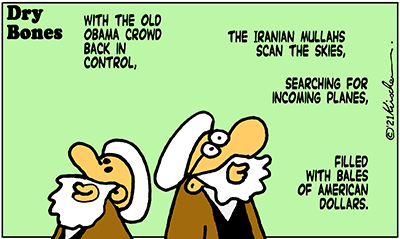Israelis, Palestinians want separation, skeptical of solutions - study
Israelis and Palestinians want to separate from one another, but the major political solutions to the conflict do not appeal to them, according to an in-depth study by the RAND Corporation released to The Jerusalem Post.Gil Troy: American Jews: Why are you AWOL on Iran? - opinion
The research found that, overall, “mistrust, broadly defined, is likely the greatest impediment to peace.”
RAND, a leading global policy think tank, conducted the peer-reviewed research via 33 focus groups from 2018 to 2020, before the COVID-19 pandemic, collecting detailed views of over 270 individuals. This widely used research approach combines quantitative data and qualitative insights, and is meant to complement the many random-sample polls taken on these topics.
Seeking “to assess whether there were any viable alternatives to the current status quo” between Israel and the Palestinians, the researchers found that Israeli Jews, Israeli Arabs, West Bank Palestinians and Gazan Palestinians were more likely to be uncertain about any of the five alternative solutions to the conflict offered – two-state solution, confederation, one-state solution, Israeli annexation of area C, or the status quo – than they were to support them.
The questions allowed for uncertainty and support at the same time, yet the only option a majority of Israeli Jews found to be acceptable was the status quo, and none were supported by a majority of any of the other populations.
“There is widespread skepticism that any alternative would be feasible,” the report states. “There was widespread distrust among Israelis and Palestinians of their own leadership, the leadership of the other side, and the people from the other side. As a consequence, there was great skepticism that a deal could be reached and that either side would abide by the terms of the deal.
“In addition, the majority of Israelis and Palestinians in our focus groups indicated that none of the alternatives would end the conflict,” the researchers wrote.
Dear Liberal American Jews,
Congratulations. Many of us democracy-loving Israelis cheered America’s political resilience as power transferred peacefully on January 20, defying Donald Trump’s rantings. And many of us join you in wishing President Joe Biden good luck. But we’re nervous too. We’re not sure Biden has Israel’s back regarding our greatest enemy: Iran. Heck – we’re not sure if you have our back regarding Iran either.
It’s confusing. Much of Biden’s foreign policy team boasts about having crafted the shameful, dangerous Iran deal Biden vows to restore. Yet he said “no” to lifting sanctions to woo Iran to negotiate. Biden’s persuadable. So why are you, our key allies, American Jews AWOL? Why are you still fighting the now-blessedly-less-relevant Trump wars, dodging this nuclear-powered battle between democracy and dictatorship, which could determine the future of the Jewish state, the Jewish people, the West itself?
Clearly, Iran isn’t on your mattering map. You refuse to acknowledge how dangerous the Iranian regime is – to America not just Israel; how urgent the issue is; and how harmful – not just useless – Barack Obama’s 2015 JCPOA agreement with Iran was.
I know I am being too Israeli; inconvenient and impolite. Trump’s polarizing presidency has made everything Obama did above criticism and any position Trump took beneath contempt. But in recovering from Trump’s assault on democracy, America needs nuanced thinking, not partisan cheerleading. Restoring a commitment to truth in all its messiness requires some self-criticism and intense debate among the “good guys” too. The Republicans have proven what constant toadying to a president does to your party, your country, your soul. Why be Biden’s lapdogs – especially when he may appreciate lobbyists demanding a hard line with the mullahs?
So ask yourself two questions: 1) Israelis are crazily polarized too – isn’t Israel’s left-to-right military and political consensus rejecting the Iran agreement striking? 2) Isn’t it even more striking that so many Middle Eastern enemies, including Israel, Saudi Arabia, Egypt and the UAE so feared Obama’s softness toward Iran that they buried decades-old hatchets and started cooperating?





































.jpg)




